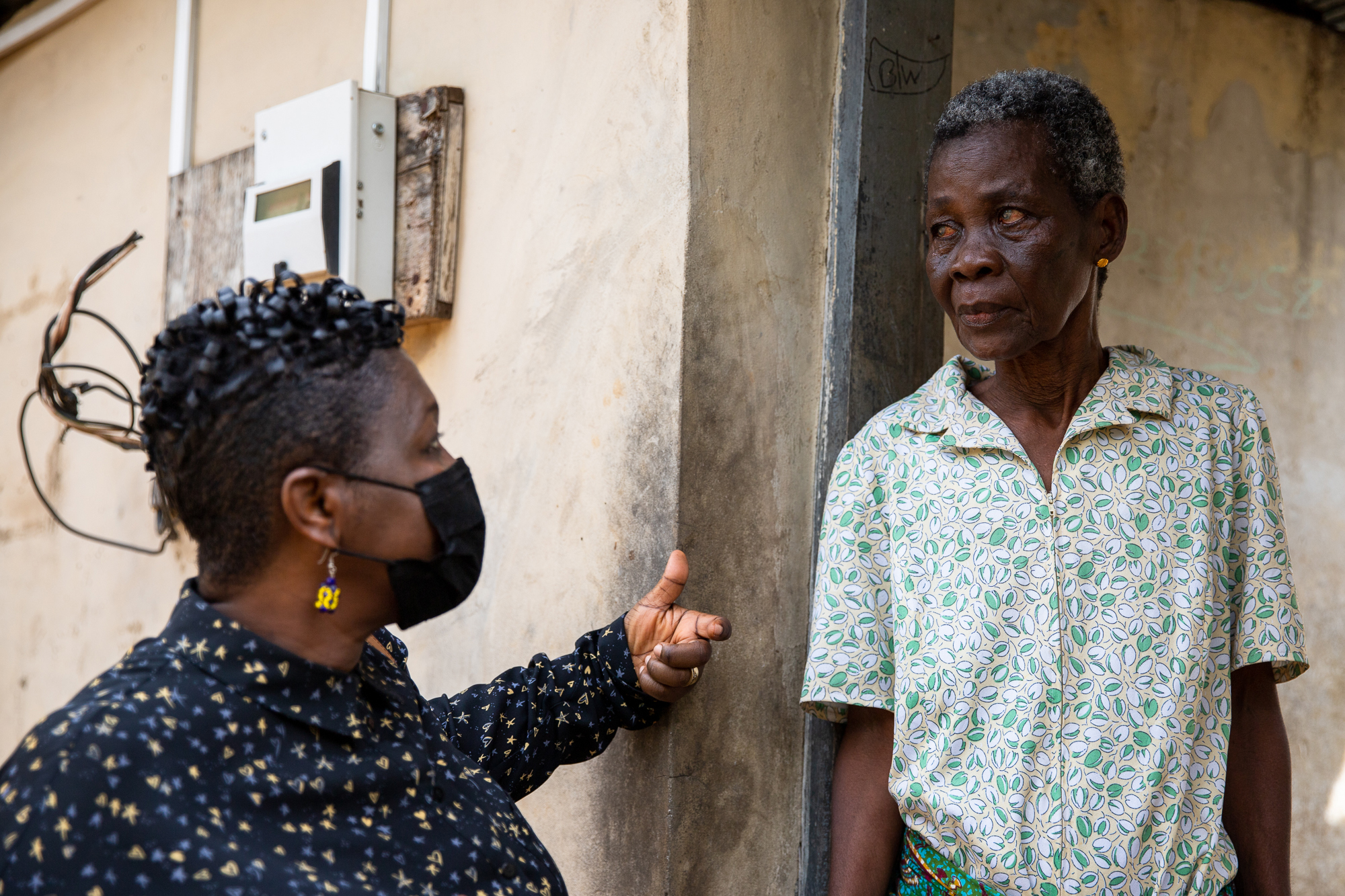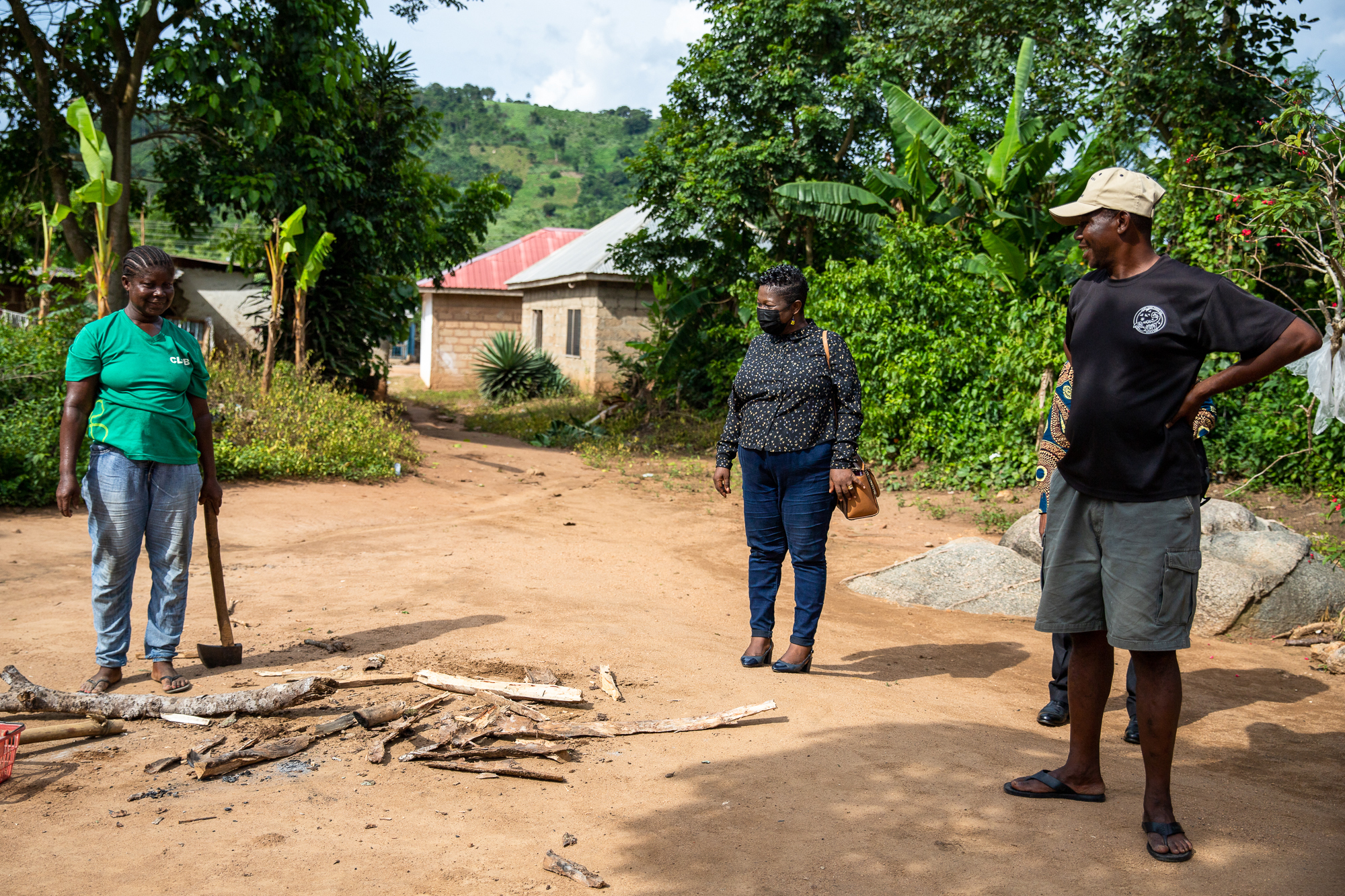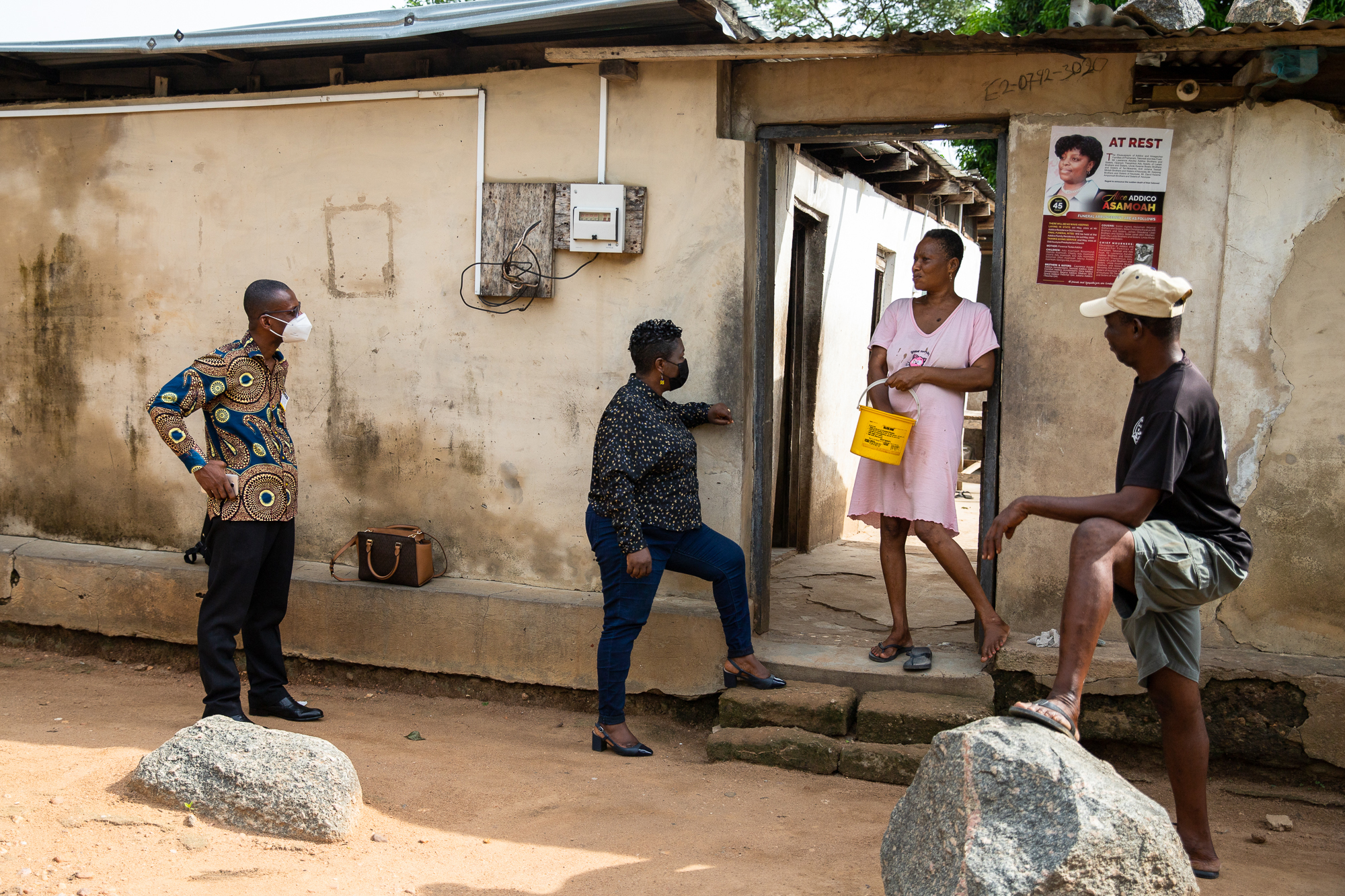Dr. Agatha Aboe still remembers the day, nearly two decades ago, when she first visited communities in Ghana’s Northern Region endemic with trachoma, an eye disease which is the world’s leading infectious cause of blindness.
“Children could not play. Even going to school was a problem for them. Their eyes were red. It was painful,” Aboe, an ophthalmologist based in Accra, told Global Citizen.
She saw women — who are blinded by trachoma up to four times as often as men — struggle with daily tasks, such as cooking in the sun and going to the market, as they experienced pain and sensitivity to light.
After years of repeated infections, trachoma can cause the eyelid to turn inward, meaning the eyelashes rub against the surface of the eye, causing discomfort and pain, and can lead to permanent damage to the cornea. Without treatment, this can lead to visual impairment or blindness.
“I thought, this is not right. In this present day, no one should be allowed to go blind from trachoma,” Aboe said. “So I was challenged once I went to these trachoma-endemic areas, to do whatever I can — do my best, and get others on board — and together, help eliminate this disease from Ghana.”
Aboe, who at the time worked for an international health nonprofit, set out on a mission to eliminate trachoma, collaborating with Ghana’s health ministry and other organizations.
 Dr Agatha Aboe (left) and David Agyemang, Program Manager, Sightsavers (middle) and Emmanuel Asiedu (right) look through patients records book at the Tinkong Clinic during a monitoring program at Akropong, Eastern, Ghana on June 28, 2021.
Dr Agatha Aboe (left) and David Agyemang, Program Manager, Sightsavers (middle) and Emmanuel Asiedu (right) look through patients records book at the Tinkong Clinic during a monitoring program at Akropong, Eastern, Ghana on June 28, 2021.
Dr Agatha Aboe (left) and David Agyemang, Program Manager, Sightsavers (middle) and Emmanuel Asiedu (right) look through patients records book at the Tinkong Clinic during a monitoring program at Akropong, Eastern, Ghana on June 28, 2021.
First, they conducted a baseline survey to find out the prevalence of the disease in Ghana and know where to focus their attention.
“We realized that for us to be able to reach out to everybody and not leave anybody behind, we had to go to the houses of the people,” she said.
Beginning back in 2002, the team performed operations on those with trachomatous trichiasis — the advanced stage of disease — whose eyelashes were already rubbing against their eyes, in order to help their eyelashes turn back outward.
Health teams also went door-to-door for mass drug administration of Zithromax, an antibiotic drug used to treat the infection and reduce its spread.
This was an annual practice, for a period ranging from one to five years, depending on the severity of the prevalence in a community.
According to Aboe, 1 million Ghanaians needed trachoma treatment, with some needing it multiple times because they would get reinfected.
“Even when you have a grain of sand in your eye, it’s very, very uncomfortable. Can you imagine when one eyelash falls into your eye?” Aboe said.
“These people [with trachoma] have a lot of their eyelashes, maybe as many as 12 eyelashes or more, bent and rubbing on the cornea ... It’s excruciatingly painful,” she added.
Aboe and other health care providers also worked to dispel myths about trachoma, which can be transmitted through the discharge from the eyes and nose of an infected person, their clothing, or even flies.
“Many ladies I would talk to said, ‘My mother had this disease and my grandma had it, too.’ They think this disease is something that runs in the family and it’s something automatic they will get,” she said.
Media partners created educational content and jingles about trachoma in various languages, and Aboe helped host focus group discussions to inform people about how improved personal hygiene can help prevent the spread of the disease.
By 2017, rates of trachoma had reduced so significantly in Ghana that the country put together a task force to gather evidence for the World Health Organization, which declared that Ghana had eliminated trachoma as a public health problem in 2018.
Aboe, who spearheaded Ghana’s application to the WHO, is passionate about helping other countries strategize how they can do the same.
“Whatever we have achieved in Ghana, we can achieve elsewhere,” she said.
 Dr Agatha Aboe (middle) and health workers at the Tinkong Clinic during a monitoring program at Akropong, Eastern, Ghana on June 28, 2021. Photo by Nipah Dennis.
Dr Agatha Aboe (middle) and health workers at the Tinkong Clinic during a monitoring program at Akropong, Eastern, Ghana on June 28, 2021. Photo by Nipah Dennis.
Dr Agatha Aboe (middle) and health workers at the Tinkong Clinic during a monitoring program at Akropong, Eastern, Ghana on June 28, 2021. Photo by Nipah Dennis.
In her current role at Sightsavers, Aboe provides technical assistance to 24 countries in Africa and Asia that are working to eliminate trachoma as a blinding disease.
Worldwide, more than 21 million people have active trachoma, and 1.2 million people are blind as a result of the disease.
Aboe, who has since returned to the communities she first visited in the Northern Region, said she noticed a stark difference as a result of the work tackling trachoma.
“The children are [able] to learn — their eyes are clear, they can read,” she said. “It brings me joy.”
The Last Milers is a profile series that highlights the people tackling neglected tropical diseases (NTDs), which impact more than 1 billion people globally. By working to ensure equitable access to preventative measures, treatments, and information, these people support the elimination of NTDs in various ways, across different fields. These advocates aim to reach every last mile with necessary health care tools and services.
Disclosure: This series was made possible with funding from the Bill and Melinda Gates Foundation. Each piece was produced with full editorial independence.



